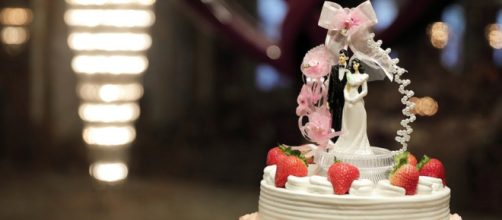In “Bake Now, or Forever Hold Your Peace?” Adam White laments the Supreme Court’s – and especially Justice Kennedy’s – shift away from a “live and let live” rhetoric regarding the right of homosexuals to marry, on the one hand, and of religions, on the other hand, to condemn those marriages. The Obergefell decision, Mr. White says, was “premised upon the assertion that it would not affect anyone else.” And yet it will very clearly affect a great number of professionals in the wedding industry, should the Supreme Court decline to recognize their right to abstain from same-sex weddings.
(I cannot refrain from pointing out, at this juncture, that the case before the Supreme Court concerns the implications of a Colorado anti-discrimination law and bears only a distant relation to the Obergefell case. Gay weddings were not legalized by the Obergefell decision, nor had they been illegal before. The issue of whether or not a refusal to serve a gay wedding is protected free speech has no immediate implications for the issue of whether or not individuals have a right to gay marriage. Additionally, Mr. White gives us no reason to believe that the Obergefell decision was premised on some “live and let live” philosophy, which need have been no more than an edifying rhetorical flourish.)
The facts of the case: Jack Phillips vs. Colorado regulators
The facts of the case can be quickly related: Charlie Craig and David Mullins approached Jack Phillips of the Masterpiece Cake Shop and requested a cake for their wedding.
In consequence of his refusal, Jack Phillips was reported to Colorado state regulators for violating the states anti-discrimination law (for my part, I remember it was not too long ago that Colorado had a pro-discrimination law, as it were, on the books). The questions at issue are, first, whether participating in a gay wedding by baking a cake (taking photographs, making floral arrangements) amounts to an endorsement of the wedding and, if so, whether the right to freedom of conscience outweighs a guarantee against discrimination.
The message is the medium
One sub-issue for resolution of the first question seems to be whether or not any endorsement expressed by baking a cake (taking a photo, etc.) would only be incidental to the primary purpose of the cake, to be eaten (an objection made by Sotomayor). To this, White responds that an object may have a primary purpose while still communicating a secondary message, though the examples he gives are not entirely convincing: The primary purpose of a draft card may be for military record-keeping, but the burning of a draft card is an action and falls under an entirely different category.
The primary purpose of a beard, on the other hand, is not by any stretch of the imagination to “cover up the face and neck,” any more than the primary purpose of clothing is to cover the body. (This is because beards and clothing do not have one primary purpose, but are part and parcel of all the ways in which an individual tacitly expresses who s/he is to those around h/er).
Society and the society we keep
Be that as it may, the sense that requiring a Christian to participate in a gay wedding is an imposition or infringement on h/er should be clear. It should be noted, in conclusion, that infringement though it may be, it could still be lawful if the countervailing right is significant enough.
To what extent does freedom of conscience allow us to seclude ourselves from the society we disapprove of? Total retreat is always an option, but we have decided, as an incorporated people, that arbitrarily picking and choosing is not always permitted, even when not being able to pick and choose forces us into the company of those of whom we disapprove.


